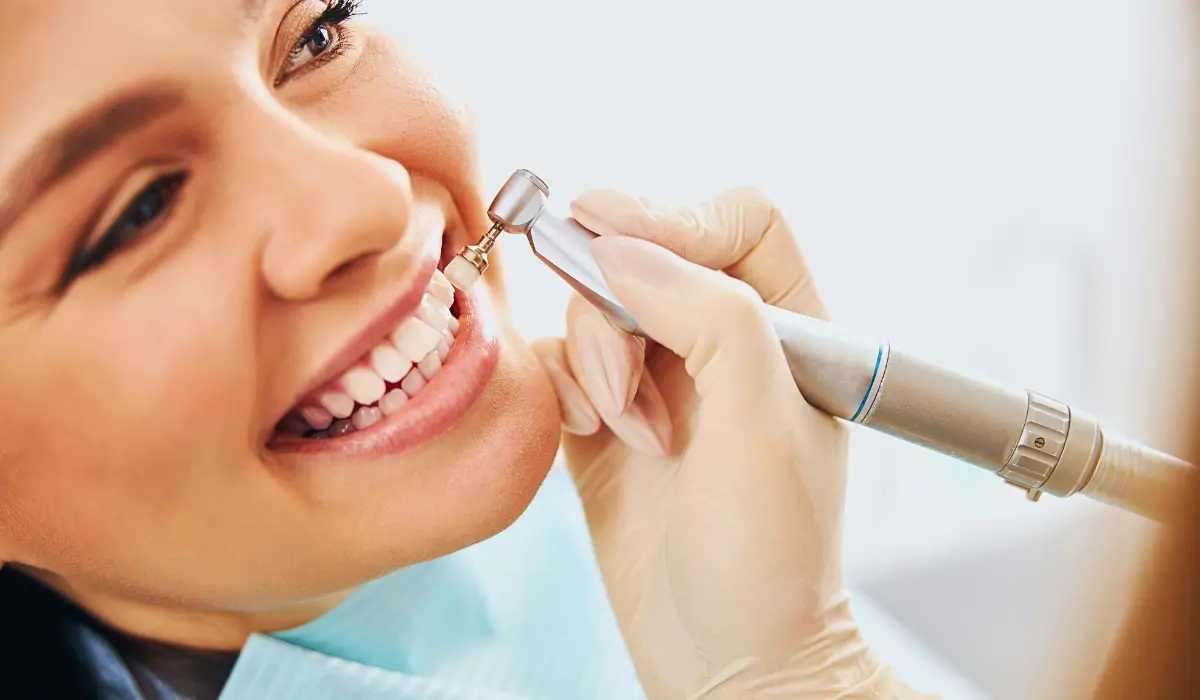If you’ve recently had your teeth cleaned at the dentist, you may be experiencing some discomfort or sensitivity. While this is completely normal, it can still be quite unpleasant. Don’t worry, though – we’ve got your back! In this article, we’ll explore why teeth cleaning can cause pain and provide you with a comprehensive guide on how to relieve that pesky discomfort. So, sit back, relax, and let’s dive in!
Why Does Teeth Cleaning Cause Pain?
Before we delve into the remedies, it’s important to understand why teeth cleaning can lead to pain and discomfort in the first place. Teeth cleaning, also known as dental prophylaxis, is a crucial part of maintaining good oral hygiene. During this process, your dentist or dental hygienist will use specialized tools to remove plaque, tartar, and stains from your teeth.

However, this seemingly simple procedure can sometimes cause temporary sensitivity or discomfort due to a few reasons:
- Gum Inflammation: If you have gingivitis or any other form of gum inflammation, the scaling process (removing tartar from below the gum line) can cause your gums to become irritated and sensitive.
- Exposed Dentin: Dentin is the inner layer of your tooth that lies beneath the enamel. If your enamel is thin or has worn away over time, the cleaning process can expose the dentin, leading to sensitivity.
- Aggressive Scaling: In some cases, if the scaling is done too aggressively, it can cause temporary gum irritation or even minor gum tissue damage, resulting in discomfort.
Now that we’ve understood the potential causes, let’s dive into our top 10 ways to relieve pain and discomfort after teeth cleaning.
Top 10 Ways To Relieve Pain & Discomfort After Teeth Cleaning
- Over-the-Counter Pain Relievers: One of the easiest and most effective ways to alleviate pain and discomfort after teeth cleaning is to take an over-the-counter pain reliever, such as ibuprofen or acetaminophen. These medications can help reduce inflammation and provide relief from discomfort.
- Cold Compress: Applying a cold compress or ice pack to the affected area can help reduce swelling and numb the pain. Simply wrap an ice pack or a handful of ice cubes in a clean cloth and gently press it against your cheek or gum area for 10-15 minutes at a time.
- Salt Water Rinse: A warm salt water rinse can work wonders for soothing irritated gums and promoting healing. Dissolve a teaspoon of salt in a cup of warm water and gently swish it around your mouth for a minute or two before spitting it out.
- Desensitizing Toothpaste: If your discomfort is due to exposed dentin, using a desensitizing toothpaste can provide relief by blocking the sensation of pain. Look for toothpaste containing ingredients like potassium nitrate or arginine.
- Oral Anesthetic Gel: For more severe cases of discomfort, your dentist may recommend using an over-the-counter oral anesthetic gel. These gels contain ingredients like benzocaine or lidocaine, which can temporarily numb the affected area and provide relief.
- Avoid Acidic and Spicy Foods: After teeth cleaning, it’s best to steer clear of acidic and spicy foods, as they can further irritate your gums and sensitive teeth. Stick to soft, bland foods for the first few days to allow your mouth to heal.
- Gentle Brushing: While it’s important to maintain good oral hygiene, be gentle when brushing your teeth after a cleaning. Use a soft-bristled toothbrush and avoid vigorous scrubbing, as this can further irritate your gums.
- Clove Oil: Clove oil has natural analgesic and anti-inflammatory properties that can help alleviate pain and discomfort. Dilute a few drops of clove oil with a carrier oil, such as coconut or olive oil, and gently massage it onto the affected area.
- Warm Saltwater Rinse with Hydrogen Peroxide: If you’re experiencing persistent discomfort, try rinsing your mouth with a warm saltwater solution mixed with a small amount of hydrogen peroxide. This can help disinfect and promote healing in irritated areas.
- Be Patient: Last but not least, remember that discomfort after teeth cleaning is usually temporary and should subside within a few days. If the pain persists or worsens, it’s advisable to consult your dentist for further evaluation and treatment.
Also Read: Broken Tooth Pain Relief – Effective Relief Techniques
Conclusion
Teeth cleaning is an essential part of maintaining good oral health, but the temporary discomfort that can follow is something we could all do without. By understanding the reasons behind the pain and employing the right remedies, you can find relief and get back to enjoying your sparkling, clean smile.
Remember, prevention is key. Practicing good oral hygiene habits, such as brushing and flossing regularly, can help minimize the need for extensive cleaning and reduce the likelihood of experiencing discomfort.
If you’ve tried the remedies mentioned in this article and are still experiencing significant pain or discomfort, don’t hesitate to reach out to your dentist. They can assess your situation and provide professional advice or treatment to alleviate your discomfort and ensure your overall oral health is in top shape.
Frequently Asked Questions
Teeth can remain sensitive for a few days up to a week after a dental cleaning. The sensitivity is usually temporary.
Yes, you can brush your teeth after a dental cleaning, but be gentle and use a soft-bristled toothbrush. Avoid vigorous brushing for the first 24-48 hours.
Yes, you can eat after a teeth cleaning. However, it’s best to stick to soft, bland foods for the first few hours and avoid anything too hot, cold, crunchy, or spicy as your teeth may be sensitive.
It’s generally best to avoid very cold foods like ice cream for the first 24 hours after a dental cleaning as the cold can cause discomfort with sensitive teeth and gums.
Yes, you can and should drink water after a dental cleaning. Staying hydrated can help promote healing. Avoid acidic beverages for the first 24 hours.

